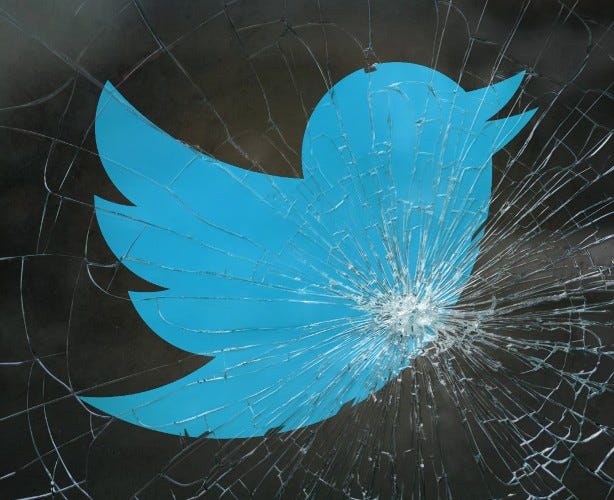Don't Ban TikTok Just Because it's a Flaming Planet of Dinosaur Shit
Ban it for other reasons
For the unfamiliar: TikTok is an app where 50 year-old men “like” videos of pre-teens dancing. It combines the groupthink of Twitter with the shallowness of a wet t-shirt contest and makes your average Facebook tiff seem like a Socratic dialogue. There’s mounting evidence that giving the app to a young person is about as responsible as giving them a vial of crack and a handgun. And now, the government might ban TikTok if it’s not sold by its Chinese parent company, Bytedance.
I think we probably should ban TikTok if it’s not sold. But I think we need to be clear about why we’re banning it. The debate around the ban sometimes notes — as I did above — that the app is a rotting septic tank filled with worm semen. Of course, the Constitution protects rotting septic tanks filled with worm semen, even if it doesn’t use precisely those words. Personally, I think those protections are extremely important. So, I think we should be careful to address concerns about TikTok in a way that doesn’t erode the First Amendment.
There are plenty of reasons to hate TikTok. Personally, I hate it because it’s one of the 65 things ruining comedy. The entertainment industry is trying to figure out how to make money in a world where turtles on tiny skateboards and penguins with perfect comic timing are funnier than any human could ever be. Say what you will about the gatekeepers of yesteryear — and I have endless bad things to say about them — they did a D-plus job of identifying talent. TikTok gets an F-minus on that front (except for funny animals — A++ on the animals). The app habitually upvotes hack comics and hot girls because teenagers are the only people dumber and hornier than the dirtbag producers of yesteryear. Letting teens run comedy is like letting teens run a restaurant: They will constantly opt for saccharin crap that has no appeal whatsoever to adults.
The news business is facing similar struggles. Like entertainment, news has seen the erosion of a gatekeeper-based model that — for all of its very real flaws — did a decent job of keeping the crazies out. Now, the crazies are on equal footing with everyone else, and if the crazy person happens to be a woman with abundant cleavage, she has an advantage. This article about TikTok news anchors made me want to jump into a volcano, or atone in some other way for my role in the rise of uber-snarky and minimally honest “newstainment”. Having witnessed how cable TV changed American news and therefore also America, I often worry that the main effect of technology is to provide faster, more cost-effective ways to lobotomize ourselves.
Social media also pretty clearly has a negative impact on young people. Irwin Mainway himself would struggle to develop a product more harmful to kids than the smartphone. Banning phones in schools is starting to look like as much of a no-brainer as banning TNT in nurseries, and parents now sometimes have to explain to their kids why it isn’t cool, actually, that their gym teacher liked that video of them at the beach. Personally, I’m about as likely to give my son a smartphone at a young age as I am to give him a pack of Winston’s, because though the latter killed basically every man in my family born before 1980, at least it waited until middle age to do so.
All of the problems that I’ve mentioned are problems with social media, generally, not with TikTok, specifically. And therein lies the danger of logic that amounts to “we should ban TikTok because it’s bad.” All of social media is bad, or at least: It can be bad when misused (I’ve highlighted the negative parts of social media for comedic effect, but my real opinion is “it’s a mixed bag”). Banning a platform for anything other than a narrow, well-considered reason creates a precedent that could easily be abused.
Imagine this scenario: A social media platform acquires a political orientation. This has already basically happened: Facebook skews conservative, TikTok is left-ish, and Mastodon is home to annoying busybodies of the type that make PTA meetings insufferable. Now, imagine that we also have a president with an extreme hostility to negative press and no respect for the Constitution. This also already happened — you remember that one guy (plus the left hasn’t exactly covered itself in glory recently when it comes to protecting free speech). I could imagine a government trying to ban an unfavorable social media platform merely on the grounds that it’s a canyon full of weasel piss. The tricky thing is: The platform probably will be a canyon full of weasel piss — I don’t want to be on the other side of that argument! To me, the much stronger case against arbitrary bans of mass communications platforms is that you can’t ban something just because it sucks.
In my opinion, there is one — and only one — reason to ban TikTok: It can be banned if it’s a tool of the Chinese government. That, to my mind, is the entire question: Is TokTok a regular company or a mass manipulation instrument possessed by a foreign adversary? TikTok certainly hasn’t allayed concerns that they’re something other than a regular company by balking at a sale; people usually jump at the “take billions of dollars and retire” deal when it’s offered. TikTok also undermined the claim that they’re not an effort to manipulate American opinion on a massive scale by enacting a very public attempt to manipulate American opinion on a massive scale. If TikTok is functionally just a foreign propaganda tool, then I think it can (and should) be banned. The First Amendment protects a lot of dumb things — Fox News, Marvel movies, etc. — but it does not require us to let a foreign adversary run a propaganda effort on our shores.
In my opinion, the bill passed by the House is pretty narrowly tailored. One key part of the bill is that it only affects apps from “foreign adversary countries”, currently defined (in a different law) as China, North Korea, Russia, and Iran. If we ever see slippage in that definition — if the government ever decides that, come to think of it, Canada is pretty damn adversarial — we could have a problem. But as of now, the bill seems limited in scope and its authors are very aware of the legal challenge that will surely happen if the bill becomes law.
We need to learn how to protect ourselves from the bad things social media brings. I’m an advocate for societal norms, e.g. saying “I get my news from TikTok” should be like saying “I get my clothes from Grave Robber Dave’s Strange-Smelling Suit Depot.” In most cases, government involvement won’t be wise. But it might be wise in this one, very specific instance.








> TikTok also undermined the claim that they’re not an effort to manipulate American opinion on a massive scale by enacting a very public attempt to manipulate American opinion on a massive scale.
I haven't exactly been thrilled by seeing this take everywhere, because it seems obvious that if you are any kind of platform and the government wants to threaten your existence, using your platform to ask citizens to petition the government is the exact thing you are supposed to do. What kind of logic is it where protesting your innocence and trying to rally support for your cause is taken as evidence of your guilt? I believe in some circles they call this a "Kafkatrap".
I say this because I think our societal norms around guilt and innocence, speech, and process are important. I think TikTok is resisting a forced sale because their new buyer is going to see a mountain of shady shit they were doing, and I support the bill overall - but I nonetheless think this particular argument against TikTok is very concerning because of the corrosive principle behind it.
The government has proven that it will censor for political reasons. It cannot be trusted with more power in this arena.